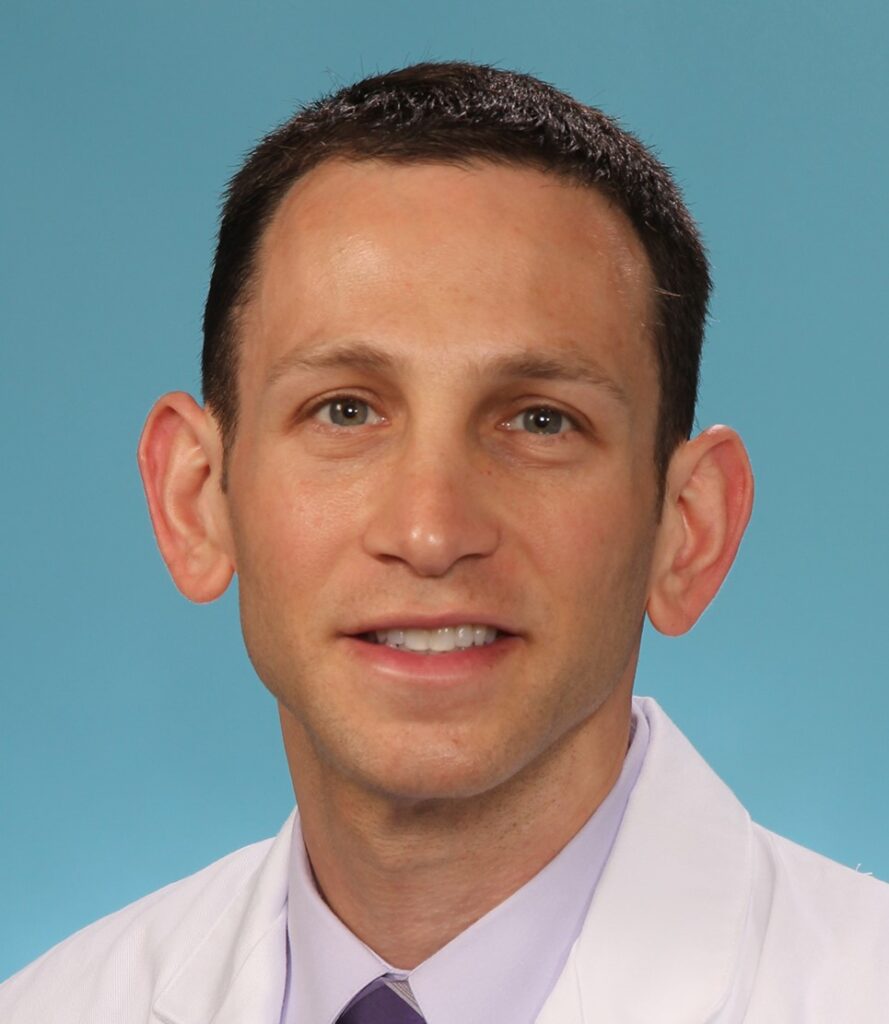April 19, 2023

David Rosen, MD, PhD, is Assistant Professor of Pediatrics, Division of Pediatric Infectious Diseases and Assistant Professor of Molecular Microbiology at Washington University School of Medicine in St. Louis. He earned both his MD and PhD at the Washington University, as well as completed his fellowship in pediatric infectious diseases there. Dr. Rosen was recognized with a PIDS Fellowship Award in 2013. He currently serves on the Research Affairs Committee.
Why Pediatric ID? For me, finding pediatric infectious diseases was a gradual progression punctuated by a few key epiphanies. As a kid growing up with the Detroit Piston Bad Boys, my primary goal was to become an NBA player. When my parents broke it to me that I had a better chance of owning a team than playing on one, my focus shifted to math and science. After attending the University of Michigan, I joined the MD/PhD program at Washington University.
On a whim, after seeing a cool story about Barry Marshall drinking a culture of Helicobacter pylori, I joined my first microbiology lab studying uropathogenesis. I then knew I wanted to become a bacteriologist and a physician that treated infections. I considered becoming an adult infectious diseases physician because the research pipeline was more established at the time, but then I realized adults were gross. Pediatric infectious diseases was the clear and best career choice.
Where have you taken your ID focus? I have become obsessed with a pathogen called Klebsiella pneumoniae (and a few other resistant Gram negatives). I became interested in Klebsiella in the early 2000s when antibiotic resistance in this organism was not a huge problem. But then, during my clinical training, I witnessed the vast expansion of resistant Klebsiella strains first-hand. Now, according to the Child Health and Mortality Prevention Surveillance (CHAMPS) study, Klebsiella is the leading cause of death in children under five in Africa and Asia.
What is a recent development in pediatric ID you are working on? My group has been working with murine model systems to determine how to make the best possible Klebsiella vaccine. We recently compared vaccines that target the capsule of Klebsiella with one that targets the O-antigen of Klebsiella. We found that, against the strains we tested, the capsule bioconjugate vaccine greatly outperformed the O-antigen vaccine. It appears that in some strains, capsule actually masks the O-antigen of Klebsiella, preventing binding by O-antibodies.
This work (Capsular polysaccharide inhibits vaccine-induced O-antigen antibody binding and function across both classical and hypervirulent K2:O1 strains of Klebsiella pneumoniae) is currently available at bioRxiv, but it should appear in print in PLoS Pathogens soon.
What do you enjoy most about being a PIDS member? What keeps you renewing your membership? The people. I have met great mentors and friends by attending PIDS conferences and serving on PIDS committees. We have a really close, tight-knit community. I always feel comfortable approaching other PIDS members and asking for help or advice. I learn so much from my peers. I also have to shout out the wonderful PIDS staff, led by the exceptional Christy Phillips.